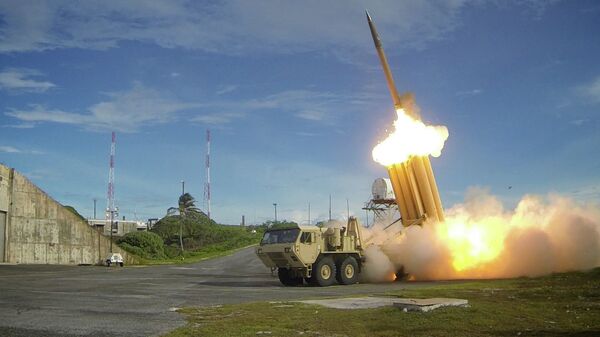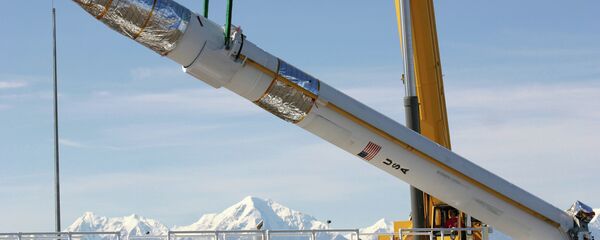He remarks came after the Pentagon said that Washington and Seoul planned to begin talks on deploying the THAAD anti-ballistic missile system to South Korea to allegedly defend the region against any potential nuclear missile capabilities developed by North Korea.
Lyon quoted sceptics as saying that "there are questions over just how much difference THAAD would make to South Korea's security," given that this system is primarily designed to intercept medium- and intermediate-range missiles and is "of little or no use" against short-range missiles.
"They use that argument to support a second: that deployment of a THAAD battery and its associated radar in South Korea is actually a move that advantages the United States against China, rather than South Korea against North Korea," Lyon said.
In this vein, he pointed to THAAD's characteristics, saying that "a quick look at the system's flight test results shows that the bulk of its testing has been against short-range targets."
"By contrast, it's largely unproven against longer-range threats such as intermediate-range ballistic missiles," Lyon pointed out.
As for China, it is concerned that THAAD may degrade China's ability to target the United States by "offering early tracking data to other parts of the US ballistic missile defense system — in particular to the Ground Based Interceptors responsible for defending the US homeland, according to Lyon.
"Its anxiety is a classic case of a security trilemma, where actions taken by one country in response to the actions of another — here the deployment of enhanced US BMD capabilities to offset North Korea's growing missile capabilities — complicate relations with a third player," he said.
He recalled in this connection that the US already has a THAAD battery on Guam, two AN/TPY-2 radars in Japan and space-based assets as well as a number of "ship-borne radars and larger land-based radars in other parts of the Pacific theatre."
"Would a THAAD deployment in South Korea change much? The short answer is that it could improve early tracking of some Chinese missiles, depending on their launch point," Lyon concluded.
The statement came after Chinese Foreign Minister Wang Yi said that Beijing is alarmed over US plans to deploy the elements of the THAAD system to South Korea, adding that "China's concerns should be taken into consideration."




